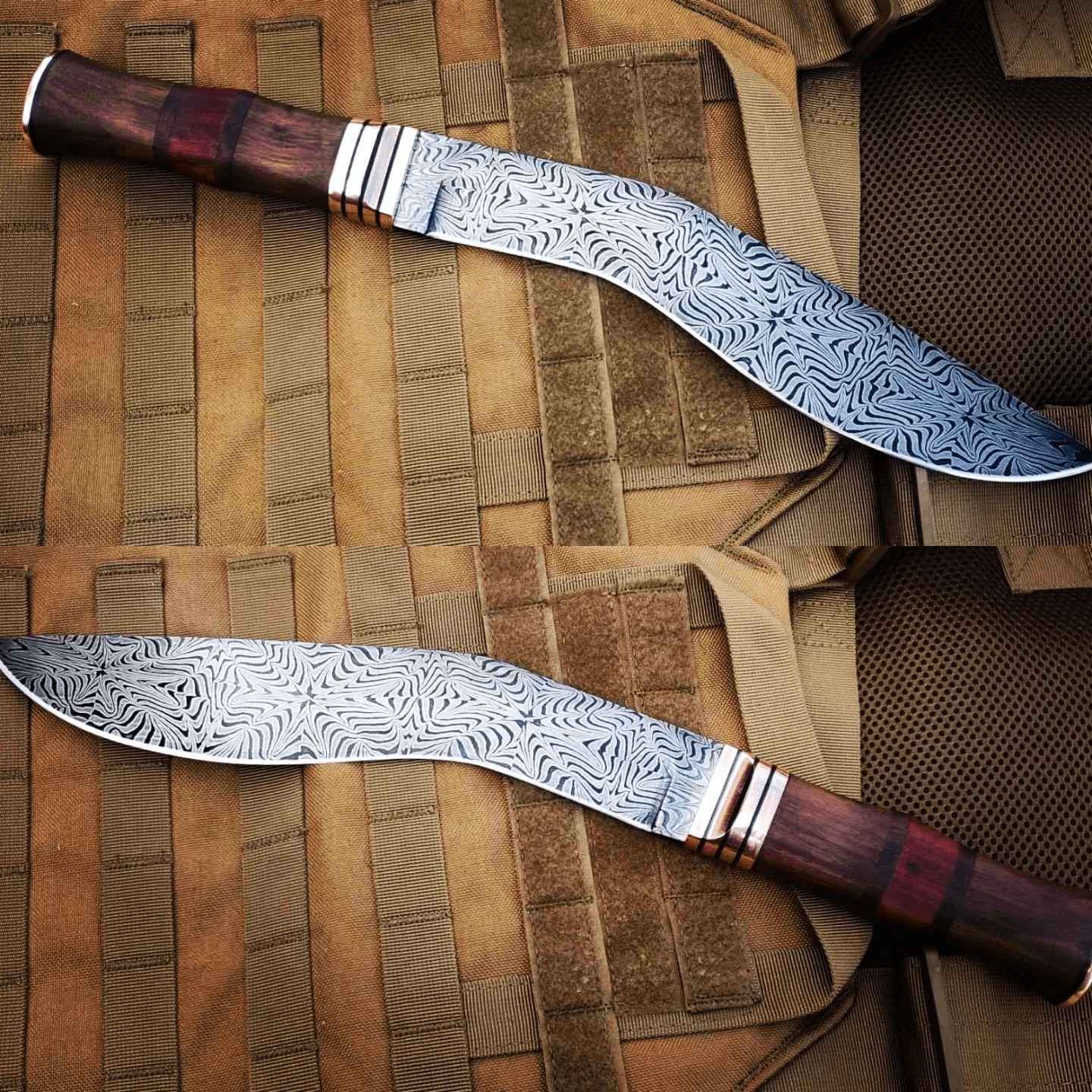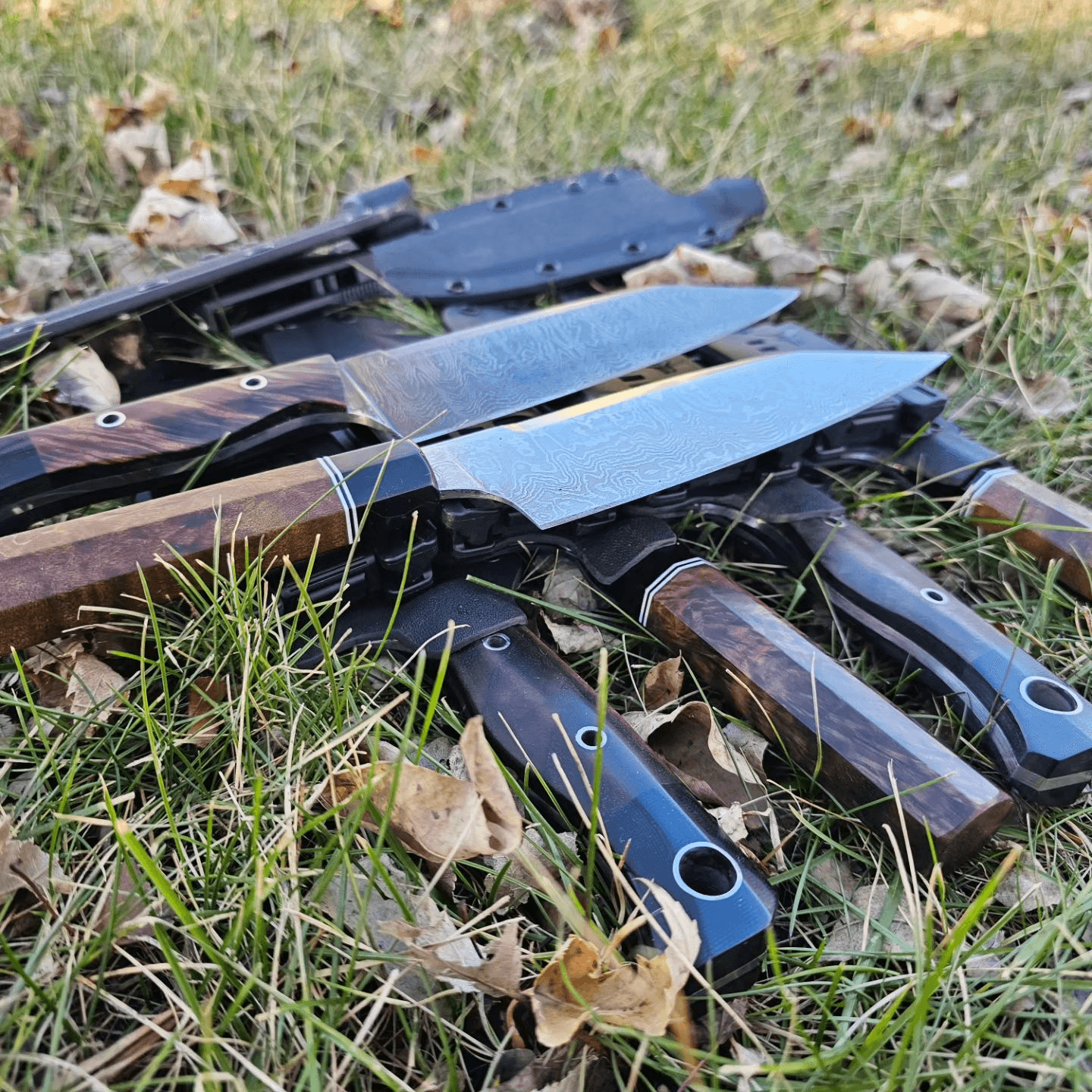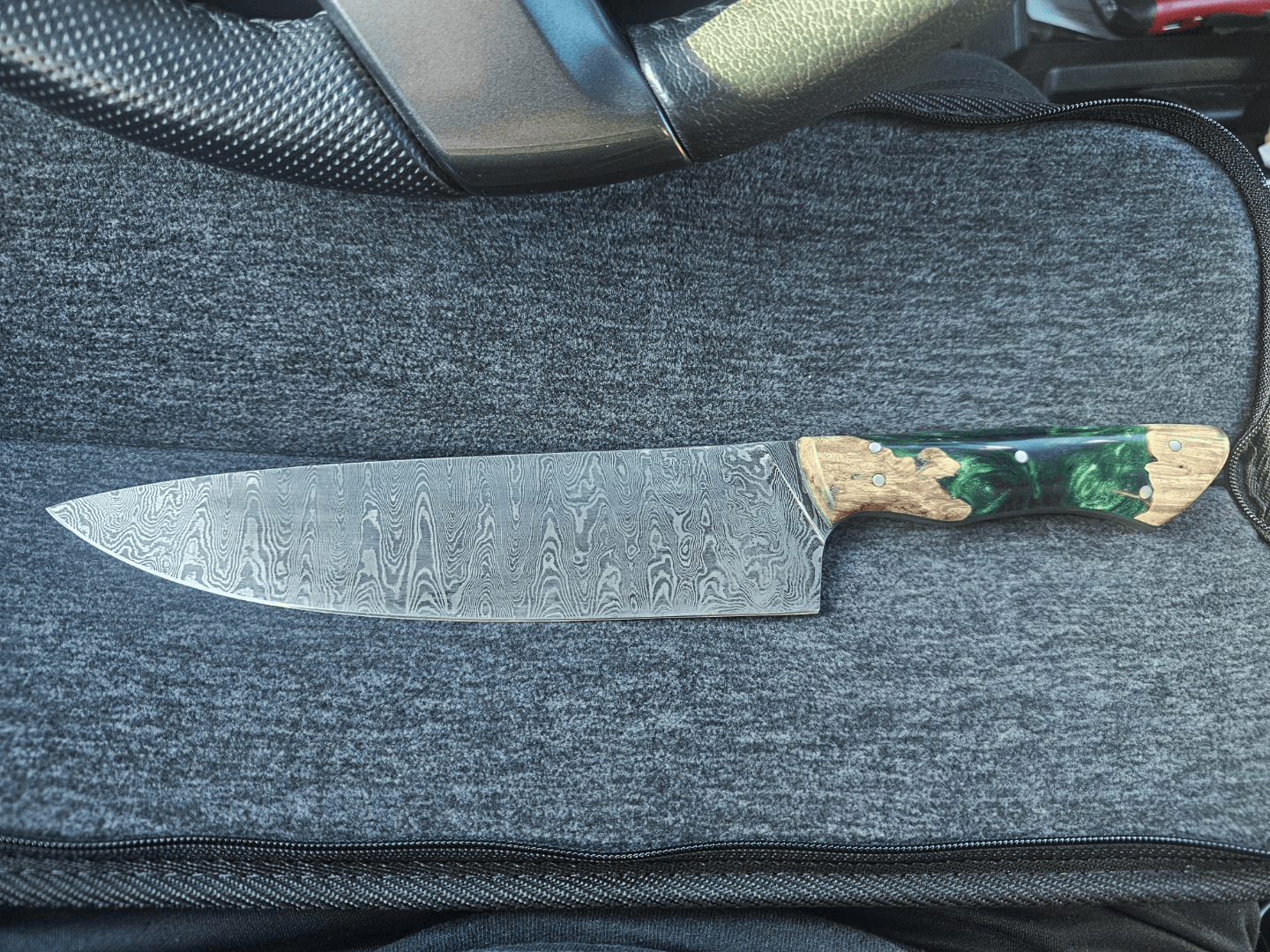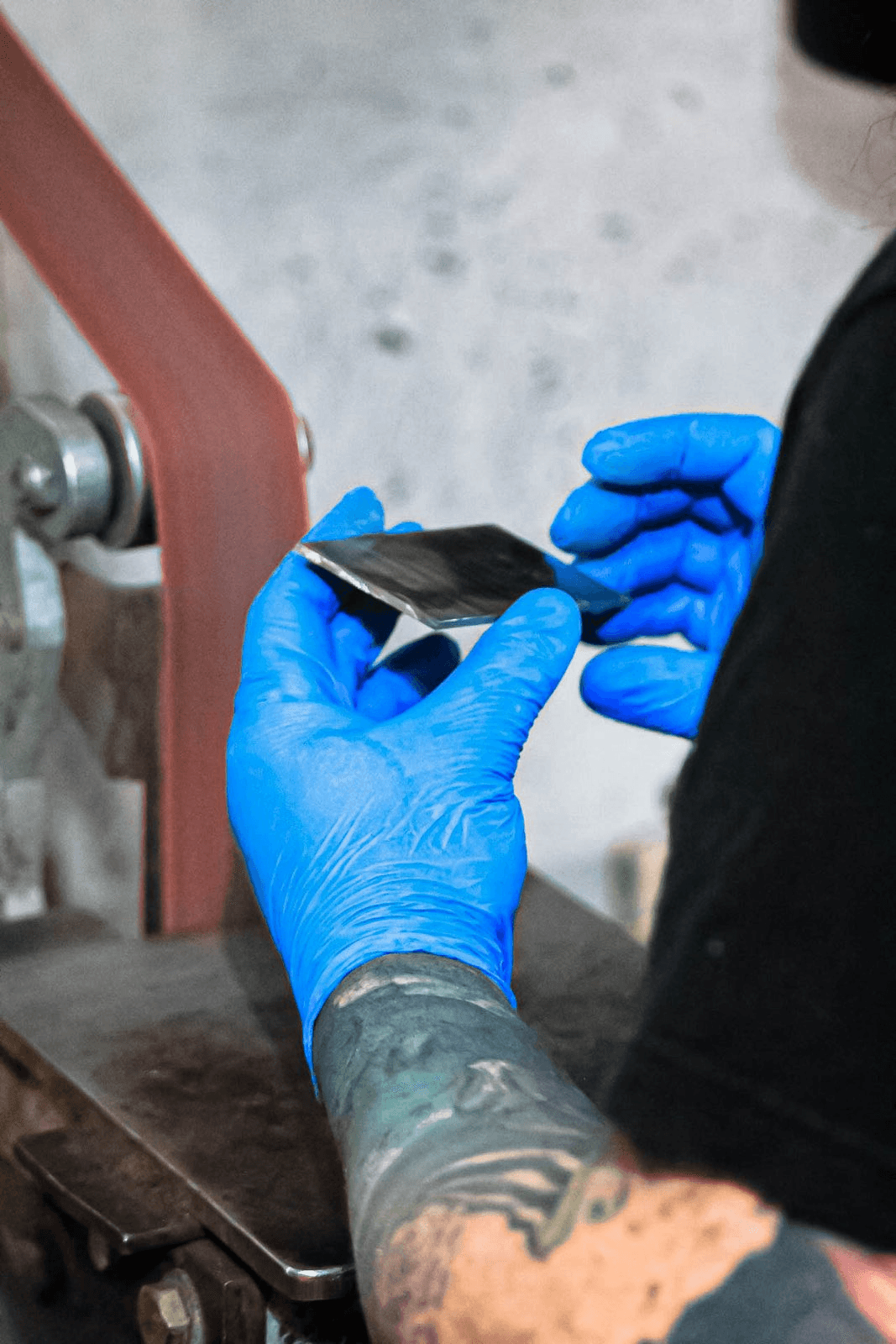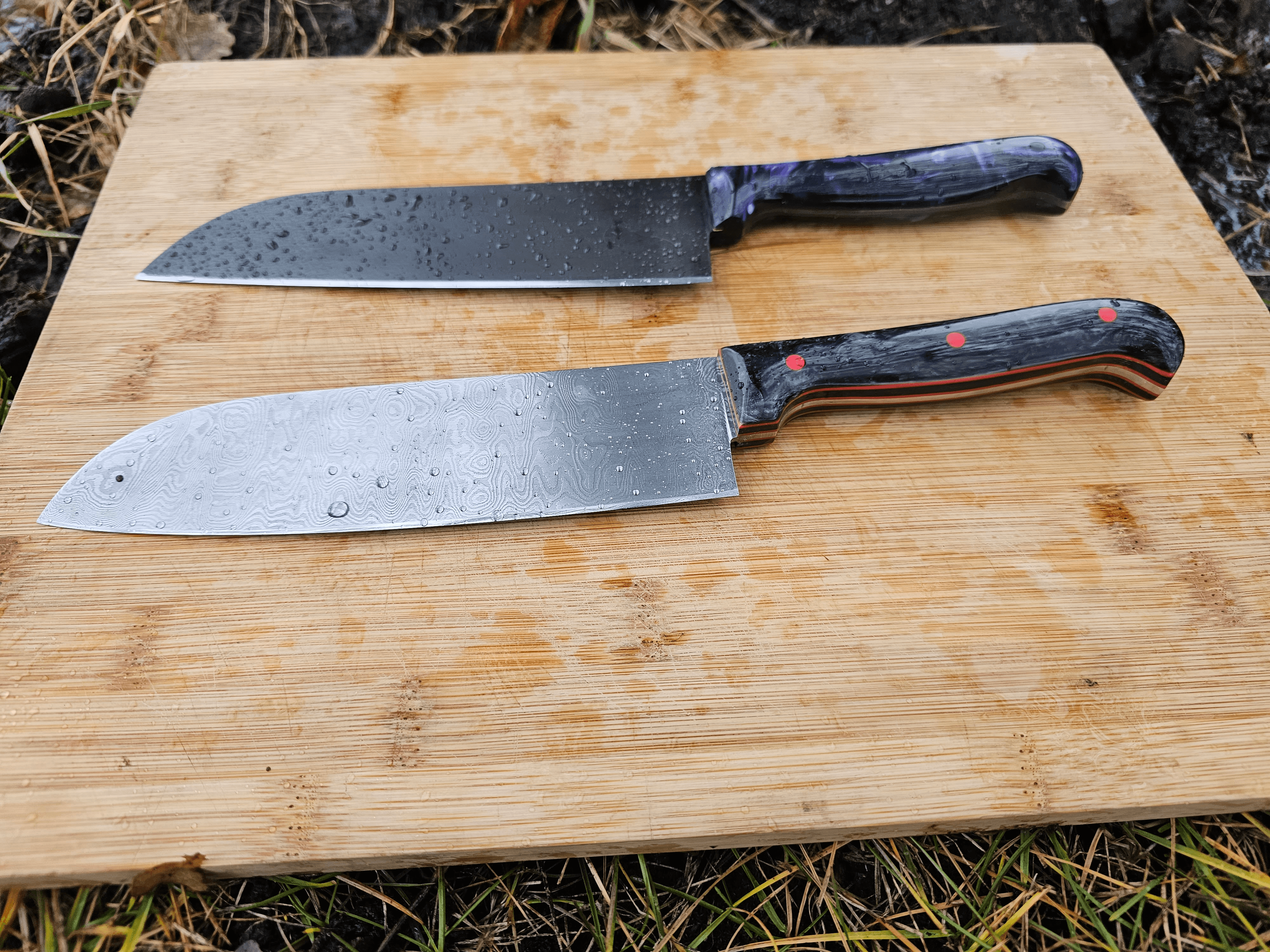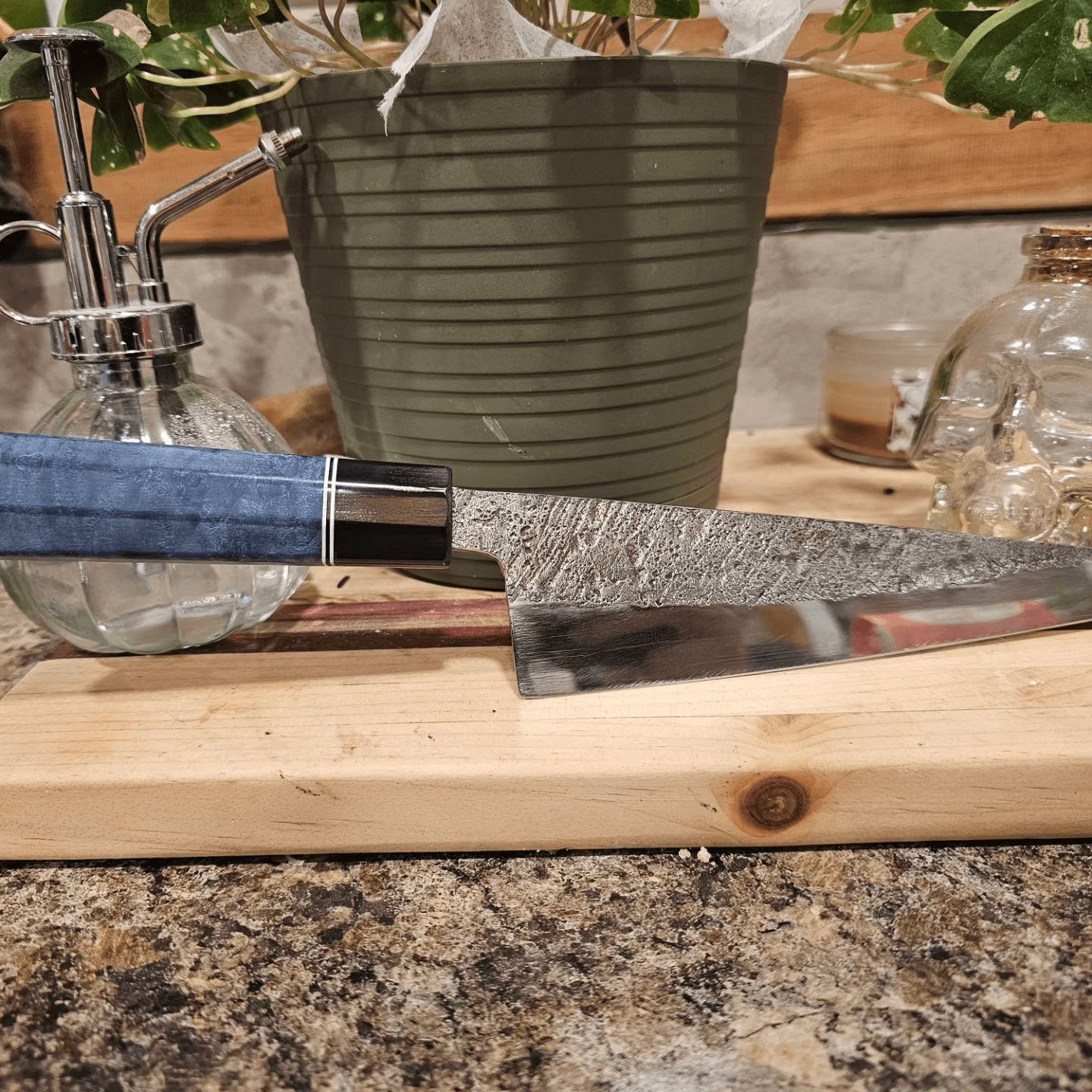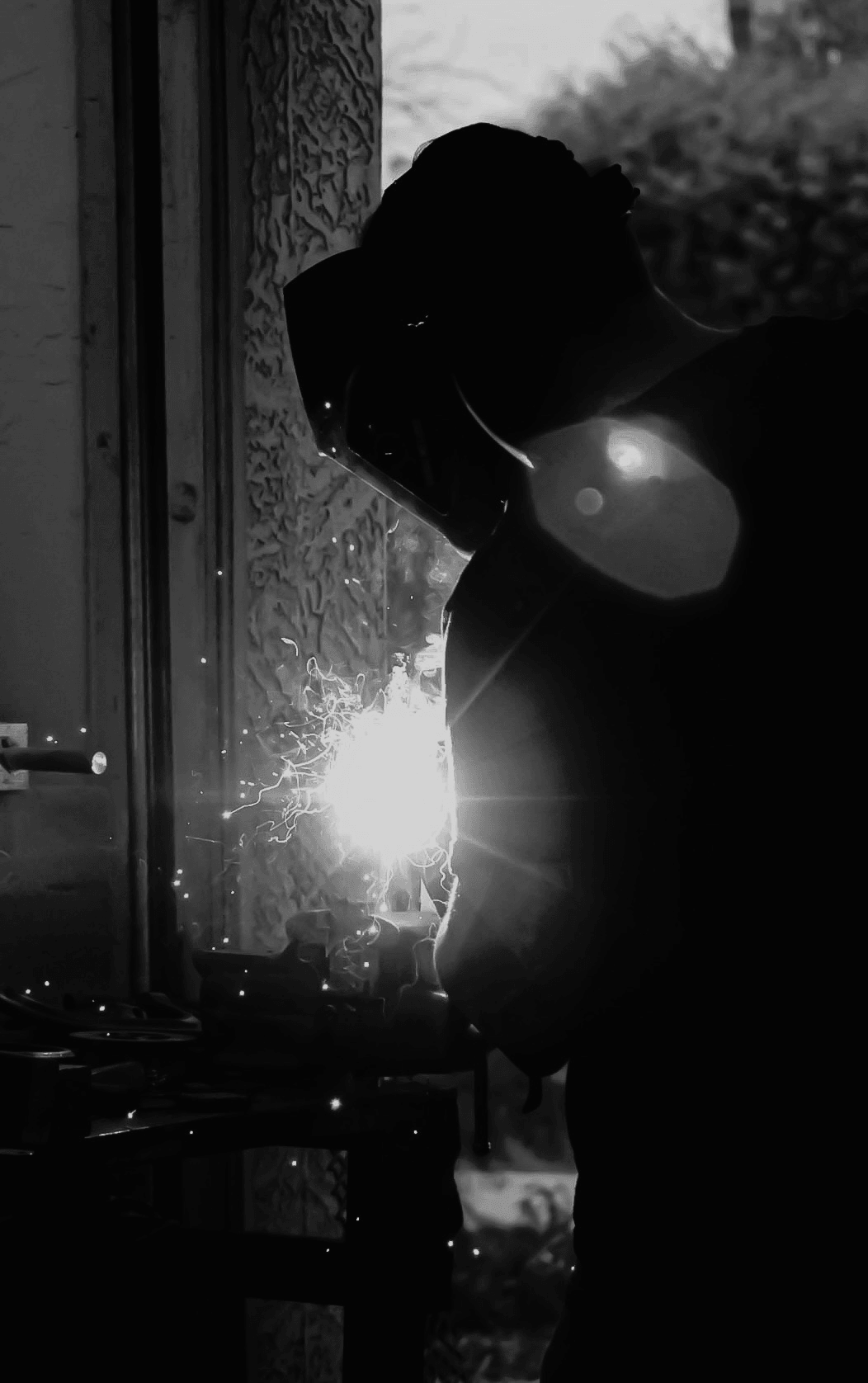We caught up with the brilliant and insightful Will Rollins a few weeks ago and have shared our conversation below.
Will, thanks for joining us, excited to have you contributing your stories and insights. Can you talk to us about how you learned to do what you do?
I am entirely self-taught with bladesmithing, blacksmithing, and knifemaking. I used every resource I could find on the internet to learn the techniques, methods, and science behind forging, metallurgy, knifemaking, and heat treating.
I think that getting over the imposter syndrome and reaching out to people in the places I wanted to be earlier in my journey would have been incredibly helpful and made the learning process much easier.
What I find to be most critical with just about anything you are trying to learn is knowing HOW to find good information. Learning how to search the internet with various keywords, learning the terminology, learning how to filter good information from bad information is critical to self education.
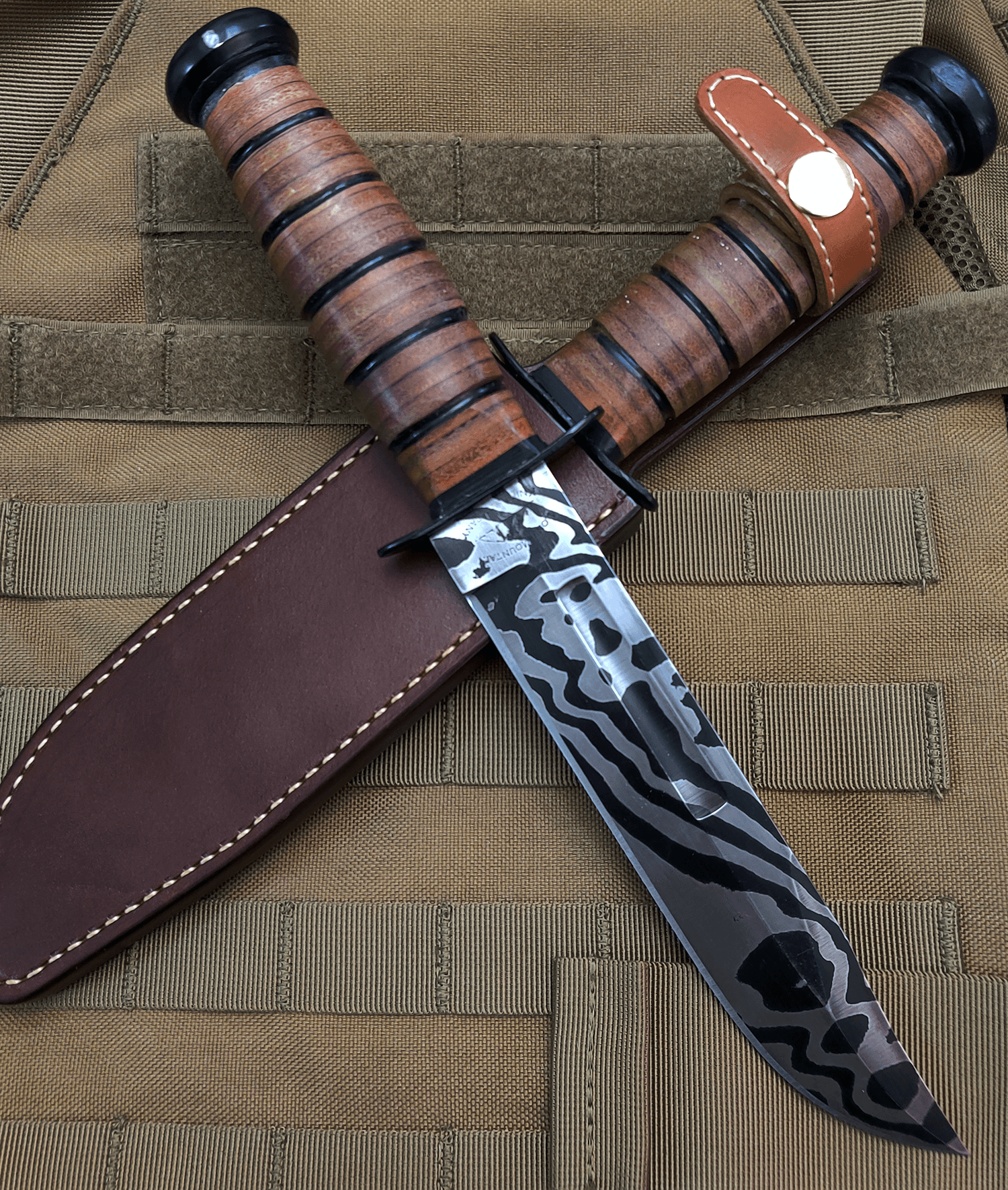
Will, love having you share your insights with us. Before we ask you more questions, maybe you can take a moment to introduce yourself to our readers who might have missed our earlier conversations?
My name is Will but most people know me as Lone Mountain Knife Company. I am a bladesmith and custom knifemaker that live streams on Twitch.tv and documents the process on social media. My bladesmithing journey began in August 2018 in Arizona. My hyperfixation at the time was rebuilding a Jeep, from the ground up, to be a rock crawler. Through that process, One day while welding up some parts on the Jeep, the friend that taught me how to weld convinced me to try out smithing using his forge. After arguing for a few minutes about the unattractive prospect of standing next to a fire during August in Arizona, I caved in and gave it a shot. I was hooked. I spent the next 4 months finding as much information as I could about building a proper forge, blacksmithing, techniques, methods, and the science behind it. I built my first forge in December and started applying what I had learned. Like many people just learning a new skill, my first work was far short of spectacular. Due to health issues, I was forced to stop forging for almost a year and a half. During that downtime, I continued to read, learn, and watch videos about the processes and educate myself as much as I could. Once I was able to get back to forging in late 2020, the time I spent educating myself really paid off. After numerous people asked about buying my work, I made the decision to start a business. December 2020 I officially started Lone Mountain Knife Company and have not looked back. Early on in this journey, I decided that I would take commissions rather than make what I wanted to and hope someone bought it. I think this decision is what has allowed me to progress my skillset as every order is different and I learn something new every time.
Year over year, my sales and social media presence has been slowly and steadily growing. I moved to Minnesota in early 2023 and have recently settled into a new house and have the workshop up and running again. With this change, I have started branching out from being online only and am now doing tradeshows. I pride myself on quality and doing what is right, even if it means turning down business. I am excited for the next few years of my journey with getting back to live streaming and doing events and tradeshows regular to continue to build the brand and keep honing my craft. This year I will be launching a signature series line of kitchen knives in collaboration with a BBQ restaurant, working through the logistics of getting into retail locations, and looking to expand my small batch production capabilities while still continuing to focus on custom, one of a kind, made to order blades.
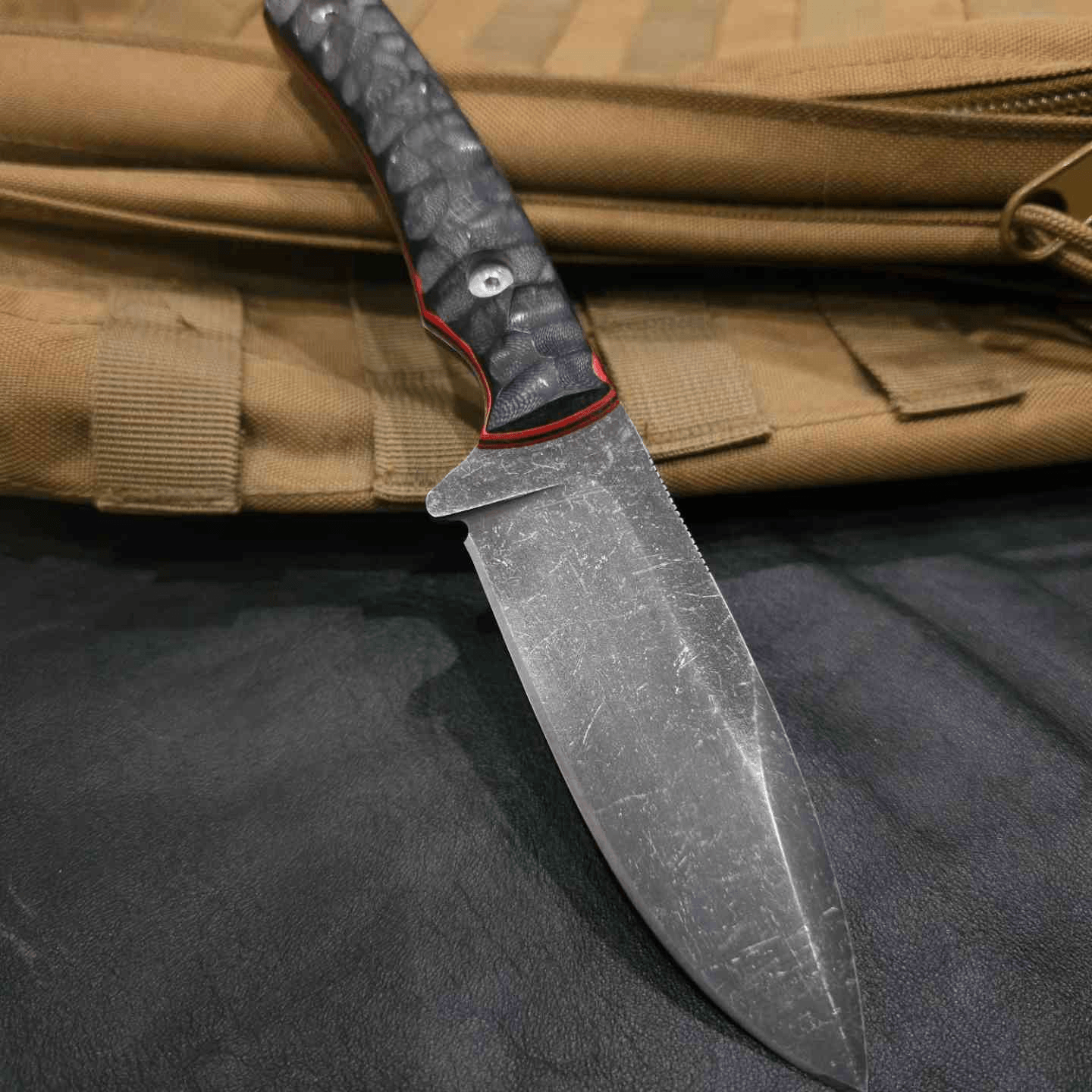
In your view, what can society to do to best support artists, creatives and a thriving creative ecosystem?
For the public: Understand that these are not mass produced items that are made as cheaply as possible. Small businesses and artists can be more expensive. If an artist’s work is outside of your budget, there is no shame in that. The items are made with care, with passion, and are typically made to last. Items are priced not just on the cost of materials and the time to make them but on the abilities of the artist, the time it took to hone their craft, the struggles, the blood, the sweat, the tears, and the scars earned along the way.
For family and friends: Supporting the creative people in your life could take many forms. This could be; sharing their work, promoting what they do, encouraging them, helping them find business, buy/commission their products if you are able, even just ask what they need at this stage in their journey and how you may be able to help. What is definitely is NOT is asking for discounts.
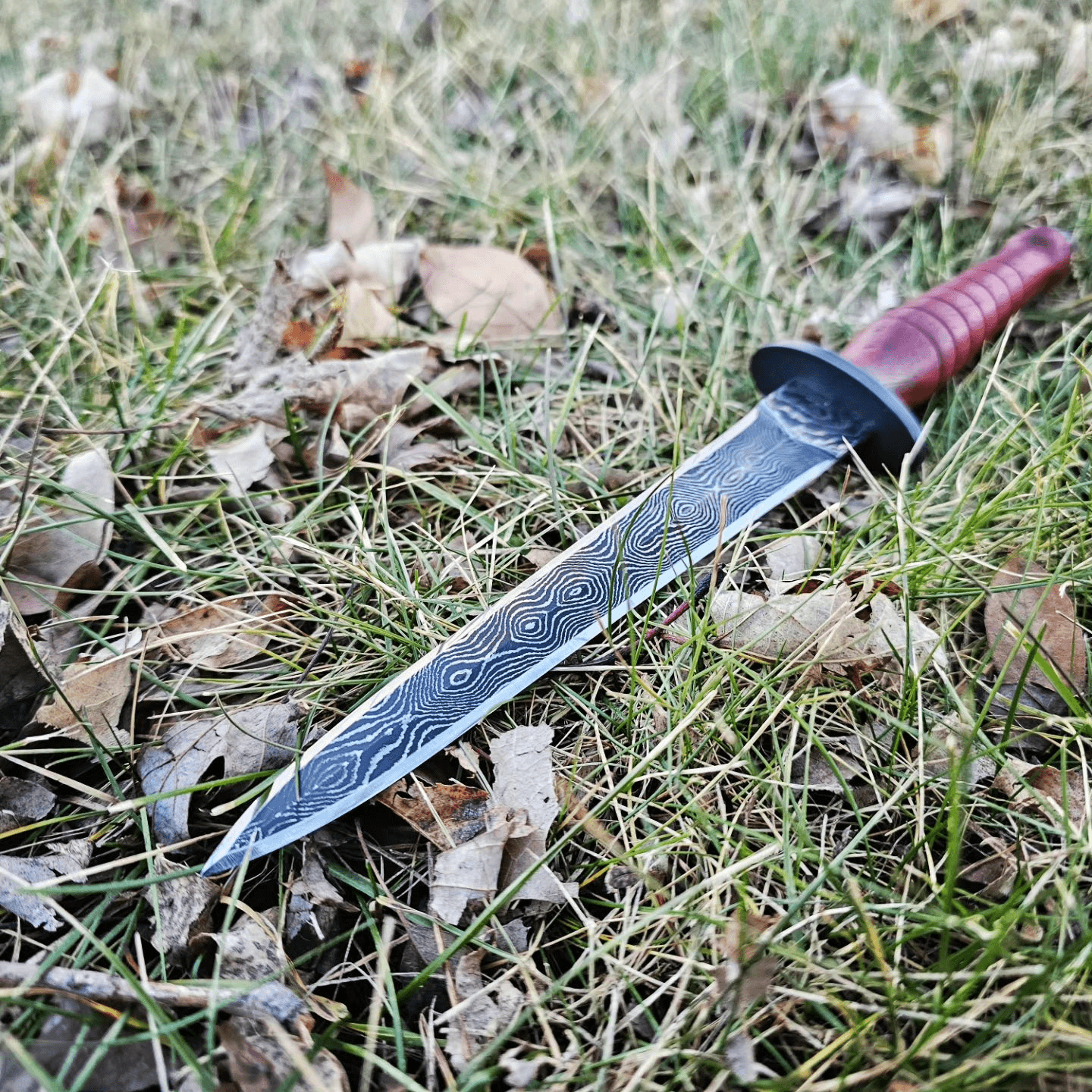
Let’s talk about resilience next – do you have a story you can share with us?
When we moved to Minnesota, we put most of our belongings and all of my tooling into storage. The original plan was to live with family while I worked on finding a small commercial/manufacturing warehouse. After many months of not being able to find a suitable location, I found a good deal on a house with some land that I could build a shop building on. Unbeknownst to me, our storage unit had not been properly maintained by the facility and all the winter snow and spring rain drained into my storage unit and then re-froze. While looking to inventory my belongings and plan for moving again, I discovered everything frozen to the ground in a 2″ thick layer of ice. By the time it thawed, a lot of our life was destroyed, either to rust, mold damage, or water damage. Books, personal documents, nearly all of our furniture, my workbenches, all of my grinder tooling, my forge, and much more. We only discovered after the loss of over $20,000 in property that insurance was capped at $5,000. To many people, this may have been a huge negative to dwell on. Yes, I was angry. Yes, I was stressed. But these things will not rebuild. We salvaged what we could, threw out what we had to, and moved on. Thankfully, I was able to fix up my most important tooling enough to get back to production. Since then, I have been able to replace and upgrade the grinding equipment and add some new tooling. Yes, it was a setback that delayed some expansion plans this year but, I can still get up everyday, go to the shop, and produce work so, in the grand scheme, it ain’t that bad. Tools break, life happens, emergencies happen, the unexpected comes up. What matters is not the challenges you face but how you face them. Dwelling on them, focusing on the negative, and using as an excuse/justification/reason for not continuing is a choice. You choose to move forward and do what you can or, you choose not to, it is entirely up to you.
Contact Info:
- Website: https://lonemountainknifeco.com
- Instagram: https://www.instagram.com/lonemountainknifeco
- Facebook: https://www.facebook.com/LonemountainKnifeCo/
- Youtube: https://www.youtube.com/channel/UCelCUUNV-6uxpPV3aTKNA2A
- Other: https://twitch.tv/lonemountainknifeco
https://linktr.ee/lonemountainknifeco
